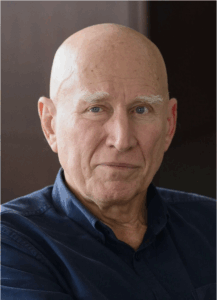Mary Poppins en famille

Arles, 2017
Quote of the Day
”The highest intellects, like the tops of mountains, are the first to catch and to reflect the dawn.”
- Thomas Macaulay
A thought that sometimes came to mind during the three days of the Beyond Neoliberalism conference last week.
Musical alternative to the morning’s radio news
Taj Mahal & Ry Cooder | Statesboro Blues
Just the ticket for a Monday morning.
Long Read of the Day
A Reality Check for Tech Oligarchs
If, like me, you sometimes wonder what Silicon Valley’s oligarchs are smoking, then this review essay (Gift Link) by John Kaag in The Atlantic is for you. His subject is Adam Becker’s More Everything Forever: AI Overlords, Space Empires and Silicon Valley’s Crusade to Control the Fate of Humanity, which has just arrived on my desk, but the review is interesting in its own right, if only because it provides a glimpse of the madness that grips these people who envision a “vibrant utopia” in which humanity
”has harnessed technology to transcend all of its limits—old age and the finite bounds of knowledge most of all. Artificial intelligence oversees an era of abundance, automating labor and generating wealth so effectively that every person’s needs are instantly met. Society is powered entirely by clean energy, while heavy industry has been relocated to space, turning Earth into a pristine sanctuary. People live and work throughout the solar system. Advances in biotechnology have all but conquered disease and aging. At the center of this future, a friendly AI—aligned with human values—guides civilization wisely, ensuring that progress remains tightly coupled with the flourishing of humanity and the environment”.
This quasi-religious vision, apparently,
“is based on two very basic beliefs. First, that death is scary and unpleasant. And second, that thanks to science and technology, the humans of the future will never have to be scared or do anything unpleasant. “The dream is always the same: go to space and live forever,” Becker writes. (One reason for the interest in space is that longevity drugs, according to the tech researcher Benjamin Reinhardt, can be synthesized only “in a pristine zero-g environment.”) This future will overcome not just human biology but a fundamental rift between science and faith”.
Worth a read. It’s a testimony to the way immense wealth, acquired early in life, drives people mad.
RIP Sebastião Salgado

A truly great photographer has passed away.
From the Obituary in LFI:
His work is defined by impressive black and white images, predominantly published in series. He was an ambassador for humanity, a fighter for justice and a resolute activist. His pictures are dedicated above all to the disadvantaged all over the world, to those affected by wars and crises, but also to the forces of nature. Salgado was a cautioning voice and a precise observer; he saw his images as a call to take more responsibility for the world and our fellow human beings. His photographs show people’s misery and suffering, the destruction of social relationships, but also the dignity and pride of every individual. His images were often shocking, but he was also able to convey the magical beauty of the world.
The FT also had a good obituary:
His work was politically and emotionally challenging. Salgado has been criticised by some for the beauty of composition with which he depicted people in extreme states of suffering. Salgado said that he sought to preserve the dignity of his subjects, and that he didn’t know how to shoot an “un-composition”. He also said there had been instances when he had put his camera down rather than take a particular shot. He once described seeing 10,000 people die from cholera in a single day in a refugee camp in Goma in the Democratic Republic of Congo. John Easterby, the former director of archiving at Magnum, believed that Salgado’s images forced viewers “to look at the unlookable”.
AI: the new globalisation that will create a world of have-nots and have-yachts
Yesterday’s Observer column:
One of the most pernicious misconceptions we have about digital technology is that it is – somehow – weightless, frictionless and dematerialised. You press a button on your phone, launch an app and there it is. What you don’t realise is that you just triggered an interaction with an unfathomable infrastructure of network towers, fibreoptic cables and huge aluminium sheds located somewhere else on the planet. The technology may seem magical but, in reality, it has a heavy material footprint. And it’s about to get much heavier.
How come? Our networked world is morphing into one in which machine-learning systems – AKA AI – will be everywhere. And that’s bad news for the planet, because AI systems are insatiable consumers of parallel computing power and, accordingly, very power-hungry.
My commonplace booklet

You can perhaps see why I like writing for the Observer!
This Blog is also available as an email three days a week. If you think that might suit you better, why not subscribe? One email on Mondays, Wednesdays and Fridays delivered to your inbox at 5am UK time. It’s free, and you can always unsubscribe if you conclude your inbox is full enough already!
